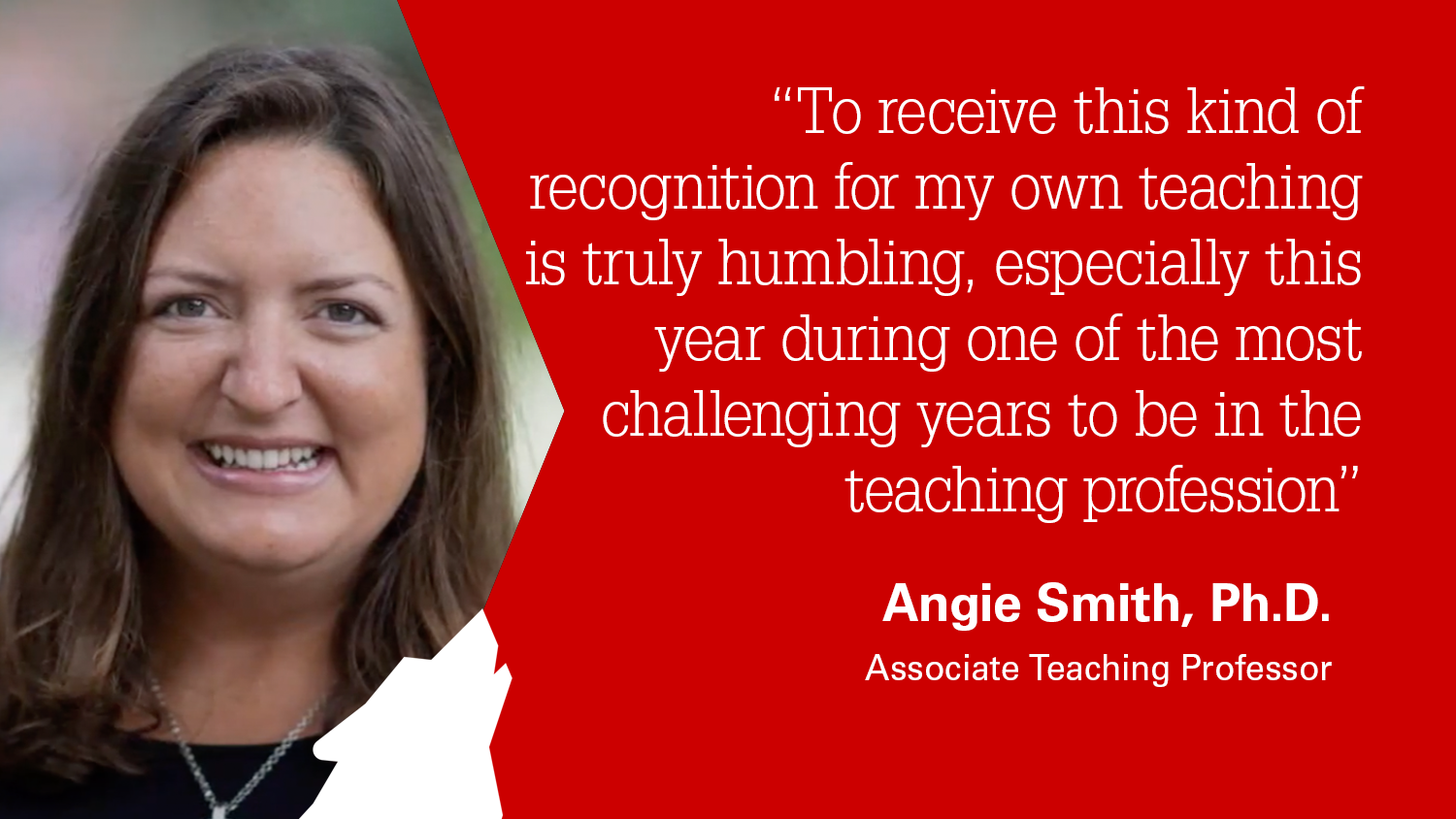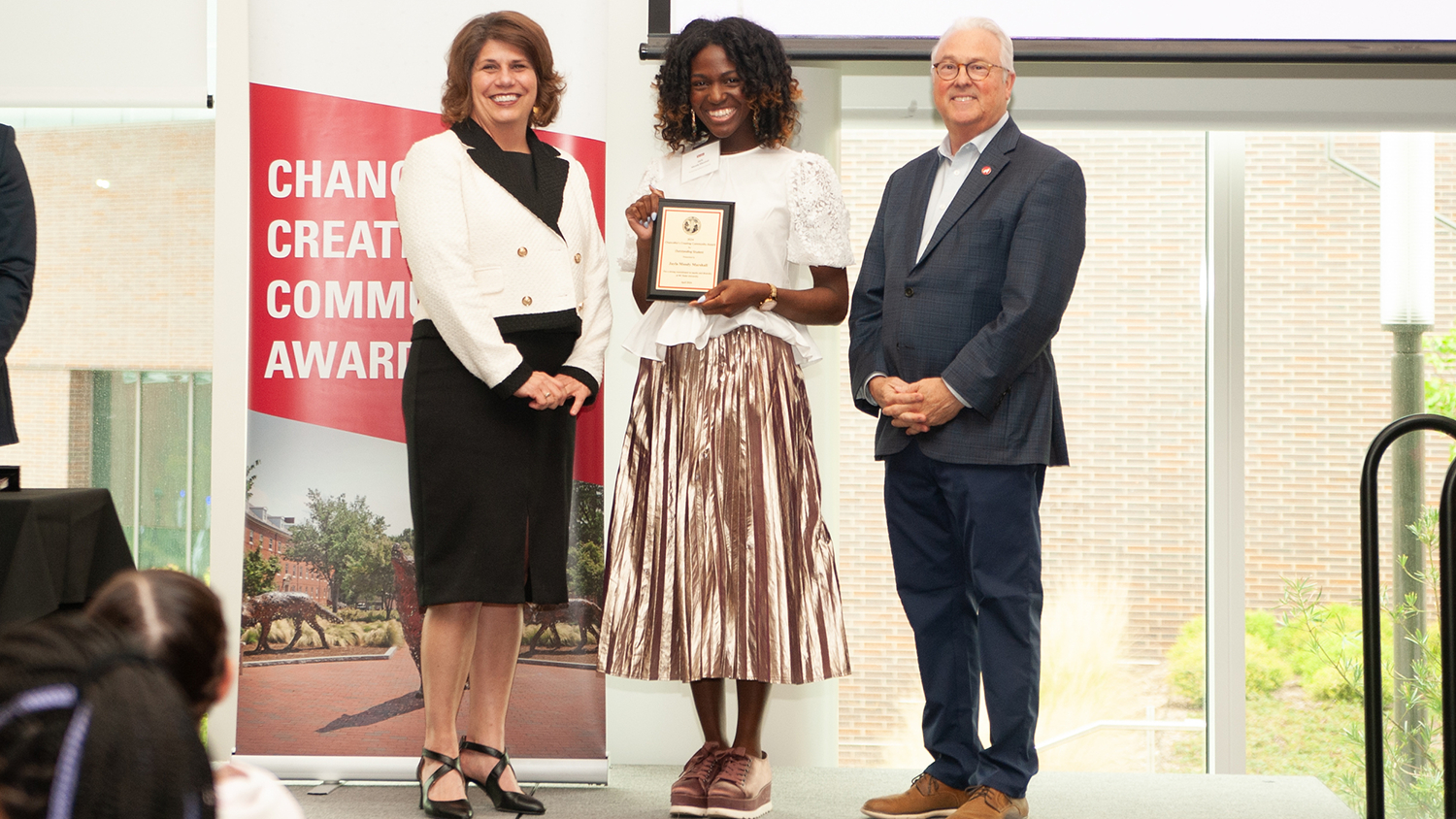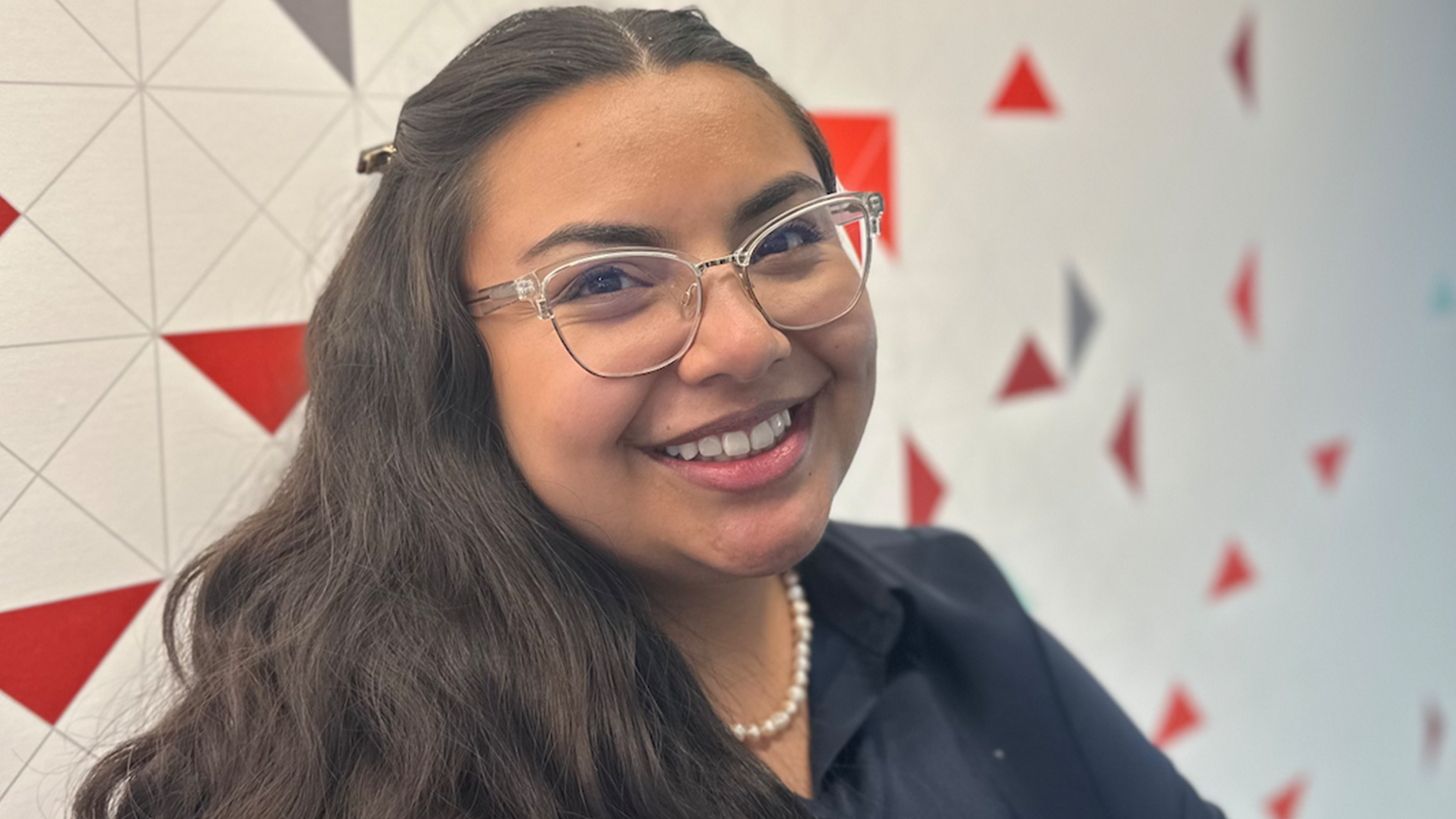Associate Teaching Professor Angie Smith Receives NC State’s 2020-21 Outstanding Teacher Award

When NC State College of Education Associate Teaching Professor Angie Smith, Ph.D., was a little girl, she always dreamed she would one day be an educator, but she ended up taking a roundabout route into the profession.
Smith spent several years working in human resources positions where one of her jobs involved supporting students and recent graduates as they entered the workforce. She developed a strong rapport with many of the students, who would often share their problems with her, but she felt as though she did not have the training to help them.
To develop her skills, she enrolled in the NC State College of Education to earn a Master of Education in college counseling and student development and ultimately earned her Ph.D. in Educational Leadership, Policy, and Human Development program area of study of counseling and counselor education. During her time as a doctoral student, she had an opportunity to work as a graduate assistant in the Graduate Certificate in Counselor Education online program and when an opportunity to teach in that certificate program became available just as she was finishing her studies, the job seemed like a perfect fit.
Eleven years later, her efforts as an educator are being honored as a recipient of NC State’s 2020-21 Outstanding Teacher Award, which recognizes creative and innovative teaching and learning practices.
“As a first-generation college student, I have been extremely blessed to have had teachers who have supported me throughout the course of my life and my hope has always been to give back and to do the same for my students both inside and outside the classroom. To receive this kind of recognition for my own teaching is truly humbling, especially this year during one of the most challenging years to be in the teaching profession,” Smith said. “I actually became emotional and shared the news with my partner and children.”
Students who nominated Smith for the award said that they appreciate her ability to connect with them as human beings and to honor the varied life experiences and world views that they bring into the classroom. Over the past year, Smith said that as she planned her courses, she had to be intentional in considering the added burdens and stressors students were facing amid the coronavirus pandemic and civil unrest.
Smith, who has co-authored a book on online learning, has been teaching online for most of her career, but she revamped some of her teaching methods since March 2020 because she understood that world and life events might impact the way students show up prepared to learn.
“There are numerous external factors that contribute to students’ growth and learning that are not involved in the classroom,” Smith said. “Caring for children and parents, contracting COVID, experiencing racism and systemic oppression, or dealing with job loss; all of these external factors impact their ability to be able to engage in the classroom space and devote their full attention to the course, content and community.”
As she designed her Orientation to Professional Counseling, Identity, and Ethics class for a new cohort of graduate students in the Summer 2020 semester, Smith sent students a welcome letter and survey asking them to share any unexpected needs or challenges they have faced since initially signing up for the course so that she could make accommodations to the best of her ability.
She also made sure that, as future counselors, her students would learn early on in their academic career to take care of themselves as well as their students and clients.
During the penultimate week of the course, Smith decided to focus on self-care and have her students put the practice into action. Students were asked to assess their current level of self-care practice, engage in the self-care activity of their choice, share that activity on a class Jamboard and then reflect upon how they will make a point of taking care of themselves when they enter the counseling profession full-time.
“As counselors-in-training, an important question to consider is ‘who is helping the helper?’ Typically, if you are joining the counseling profession, you possess some level of empathy and compassion. But ultimately, in the midst of crisis and grief, we’re not in a bubble, untouched by the external factors and world around us,” Smith said. “In my opinion, identifying ways to care for ourselves and offer space and time for connection and healing brought our community even closer. In counseling, we often say that it’s impossible to pour from an empty cup. Focusing on that self care piece was vital during everything that was going on at this historical moment in time.”
The fact that her students not only remained enthusiastic about the course material, but that some took the time to nominate Smith for the Outstanding Teaching Award even as they faced so many challenges in their own lives, is what she says has made the honor particularly meaningful for her.
“I am full of gratitude for my students, colleagues and the committee. My students inspire me every day, and the fact that even among the grief and personal life situations that are happening for students, they would take the time to nominate me for this type of recognition is truly humbling. I remain eternally grateful,” she said.
- Categories:


